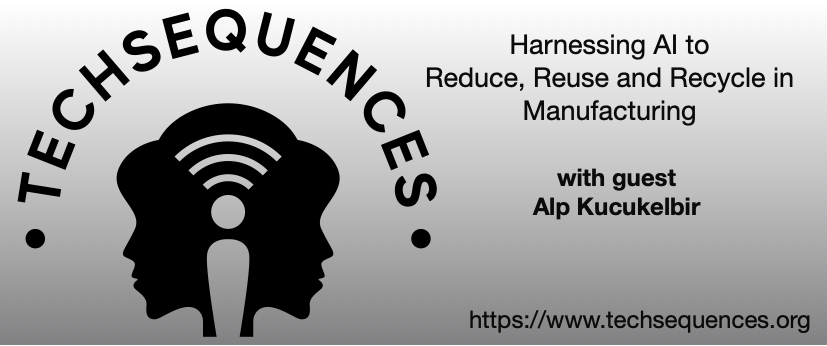
Harnessing AI to Reduce, Reuse and Recycle in Manufacturing
Guest: Alp Kucukelbir
The manufacturing sector, notably cement and steel production, accounts for nearly 20% of global CO2 emissions. As artificial intelligence (AI) looms large in its potential to reshape all industries, there’s mounting pressure to integrate AI into manufacturing as a tool to combat climate change. Advocates highlight AI’s capacity to revolutionize manufacturing processes, offering optimization of operations, predictive maintenance to preempt equipment failures, and enhanced resource efficiency. Moreover, proponents envision AI facilitating the shift towards a circular economy, where materials like steel and plastics are recycled rather than discarded after their useful lifespans. However, critics caution against the substantial energy consumption associated with AI, suggesting that its benefits in streamlining manufacturing processes may be outweighed by its energy demands.
Join us for a discussion with Alp Kucukelbir, adjunct professor at Columbia University and Chief Scientist and co-founder of Fero Labs, as we delve into the potential and pitfalls of AI integration in manufacturing.
Hosted by: Alexa Raad and Leslie Daigle.
Further reading:
- AI likely to increase energy use and accelerate climate misinformation – report
- Artificial Intelligence for Climate Change Mitigation Roadmap
- Artificial Intelligence threats to climate change
- 9 ways AI is helping tackle climate change
- UN: How AI helps combat climate change
The views and opinions expressed in this program are our own and may not reflect the views or positions of our employers.
Podcast: Play in new window | Download
Subscribe: Apple Podcasts | Spotify | Android | Blubrry | RSS